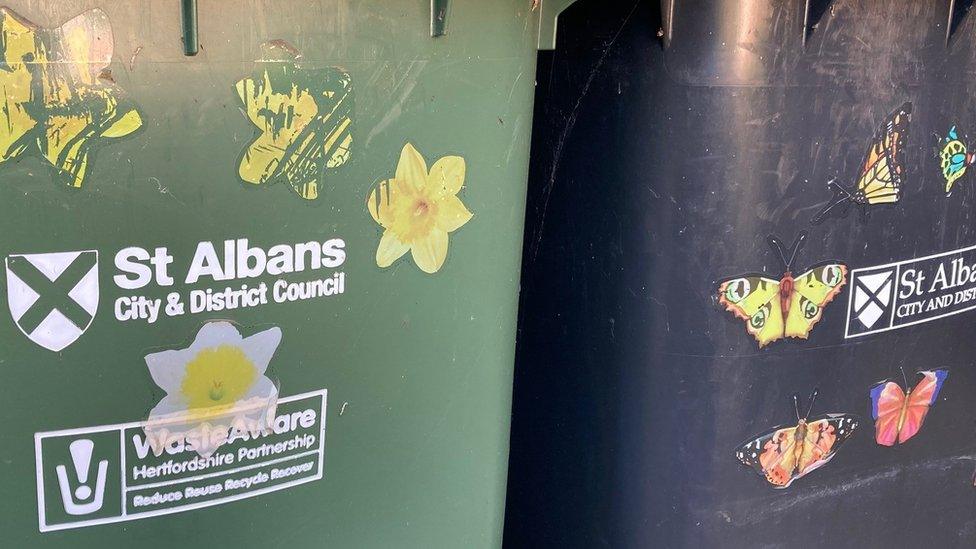Hertfordshire sees waste and recycling rates increase in most districts
- Published

St Albans recorded the the highest recycling rate at 64.2%
The amount of recycled or composted waste increased in most parts of Hertfordshire last year.
The latest data from the Hertfordshire Waste Partnership shows that in the 2020/21 financial year, councils dealt with an additional 11,000 tonnes of dry recycling than the year before.
Compostable material collected, such as garden and food waste, increased by 7,750 tonnes.
The partnership said its recycling rate of 52.4% was its "best result ever".
Councils across the county collect materials for recycling and composting, including paper, cardboard, glass, plastic, food and garden waste.
The data, presented at a recent meeting of the partnership, shows that recycling rates increased in seven of the 10 district and borough areas, the Local Democracy Reporting Service said.
Across 11 councils, including the county council, the overall recycling rate went up from 52.3% in 2019/20 to 52.4%.
The district to record the highest recycling rate was St Albans, which at 64.2% was 1.2% higher than last year.
The biggest increase was in Watford, where it increased by 4.9% to 50.2%.
Stevenage recorded the lowest recycling rate at 40.2%, though this was up 0.7% on the previous year.
The report also said more than 37,000 tonnes of recyclable material was sent overseas for reprocessing.
It shows that of the 276,379 tonnes of material collected from Hertfordshire homes for composting, recycling or reuse in 2020/21, 85.73% was recycled in the UK.
No garden and food waste, glass, wood, cans or scrap metal was sent overseas but 3,340 tonnes of other materials were shipped to Europe, 34,301 tonnes to Asia and 683 tonnes to Africa.

Find BBC News: East of England on Facebook, Instagram and Twitter. If you have a story suggestion email eastofenglandnews@bbc.co.uk